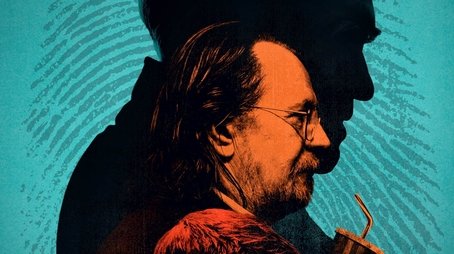
Ask Your Own Question
What is the plot?
The series opens with DCI Carl Morck, a brilliant but abrasive detective, recovering from a shooting incident that left a young police constable dead and his partner, Hardy, paralyzed from the waist down. Carl is wracked with guilt over the botched crime scene and is reassigned to Department Q, a newly formed cold case unit located in the police basement, intended as a political token rather than a serious investigative team.
Carl is reluctantly paired with Akram, a Syrian ex-policeman and asylum seeker desperate for work, and Rose, a smart but traumatized young administrative clerk eager to prove herself. Their first cold case involves Merritt Lingard, a headstrong lawyer specializing in domestic abuse cases who disappeared four years earlier. The team begins investigating her disappearance, uncovering that Merritt is being held captive in a hyperbaric chamber.
Merritt is repeatedly questioned by her captor, who asks why she is there. She struggles to recall who might have wronged her, reviewing her past cases and personal history. Her captor is revealed to be Lyle, a deeply disturbed man with a violent past linked to his unstable mother. Video footage from Lyle's youth counseling sessions shows that his mother often locked her sons in a chamber, explaining the hyperbaric chamber's use.
The investigation reveals that Lyle killed Merritt's husband, Sam, and assumed his identity after staging Sam's death as a climbing accident. Lyle's motive is tied to his violent and unstable upbringing. Merritt has been held in the chamber for four years, and when Cunningham, a man who believed Lyle killed Merritt, confronts them, Lyle bludgeons Cunningham to death.
Carl and Akram locate the Jennings' property on Mhòr, where Merritt is held. They find Cunningham's body and the hyperbaric chamber. Lyle ambushes them, and during the confrontation, Carl is shot while protecting Akram. Akram disarms and kills Lyle, rescuing Merritt from the chamber just as the pressure inside becomes dangerous.
Meanwhile, Ailsa, another character involved in the case, shoots herself to avoid capture by the police on a ferry. Merritt is reunited with William, a man who identifies Lyle as both his attacker and the man in the cap from previous incidents.
Three months after the rescue, Carl blackmails Burns, a police official, into funding Department Q properly, providing a new car and officially making Akram a detective. Carl returns to work with Akram, Rose, and James, who is now walking on crutches after his injuries. Moira, a superior officer, considers assigning James to investigate the still unsolved Leith Park shooting, setting up future cases.
Throughout the series, Carl struggles with his PTSD and guilt over the shooting that paralyzed Hardy and killed another officer. The unresolved investigation into that shooting runs parallel to the Merritt Lingard case but remains open by the season's end. Carl suspects the shooting was an inside job linked to a local crime boss, but no definitive resolution is reached.
The season closes with Department Q, now a more cohesive and better-supported team, ready to tackle new cold cases, buoyed by their success in solving the seemingly impossible Merritt Lingard disappearance.
What is the ending?
The ending of Dept. Q (2025) shows Detective Carl Morck and his team successfully solving the cold case of missing prosecutor Merritt Lingard, rescuing her from captivity. Morck begins to heal emotionally and physically, reconnecting with his stepson, while his partner Hardy, previously paralyzed from a shooting, starts walking again. However, the mystery of who shot Morck and Hardy remains unresolved, hinting at deeper corruption. The series closes on a hopeful but realistic note, with the team ready to tackle new cases.
In the final episodes of Dept. Q, the narrative unfolds as follows:
The team intensifies their investigation into Merritt Lingard's disappearance. Initially believed to have fallen or been pushed overboard during a ferry trip with her disabled brother William, clues emerge suggesting she was actually kidnapped. A drawing by William of a man wearing a hat with a bird emblem, along with testimonies from the Lingards' housekeeper Claire and Merritt's boss, Lord Advocate Stephen Burns, lead the team to uncover a conspiracy behind her disappearance.
As the investigation progresses, the team discovers Merritt is being held captive by kidnappers connected to powerful figures. Using the evidence gathered, they manage to blackmail the Lord Advocate into increasing funding for Department Q, securing better resources including a new car and fast-tracking the promotion of Akram Salim, a skilled Syrian IT expert who has become an essential member of the team.
Parallel to this, the series revisits the shooting incident that left Morck and Hardy wounded. Morck suspects an inside job involving corrupt officers, as the initial wellness check call was faked to lure them into an ambush. Despite ongoing efforts, the identity of the shooter remains unknown by the season's end, leaving this thread open.
The climax sees the team successfully rescuing Merritt, who expresses gratitude but notably does not recognize Morck when they briefly cross paths three months later at the police station. Morck, having taken some time off, silently acknowledges her before she leaves, a moment deliberately devoid of sentimentality, reflecting the show's realistic tone.
Morck's personal arc concludes with him adopting a more positive outlook and improving his relationship with his stepson. Hardy, once paralyzed, is shown walking again with crutches and rejoining the cold case unit, symbolizing recovery and resilience.
The final scenes depict Department Q reassembled and ready to face new challenges, with Morck, Hardy, Akram, and Rose united. The unresolved shooting case looms in the background, suggesting future conflicts and investigations.
Fates of main characters at the end:
- Carl Morck: Physically recovering, emotionally more open, reconnecting with family, leading Department Q with renewed purpose.
- Hardy: Regains ability to walk with crutches, returns to active duty in the cold case unit.
- Merritt Lingard: Rescued and safe, but emotionally distant from Morck, indicating trauma and complexity in their relationship.
- Akram Salim: Promoted and integrated as a key team member, bringing technical expertise and calm professionalism.
This detailed ending balances resolution of the central kidnapping case with ongoing mysteries, emphasizing the characters' perseverance amid unresolved dangers.
Who dies?
Yes, in the 2025 TV show Dept. Q, several characters die under dramatic circumstances:
-
Lyle Jennings: A deeply disturbed man who is the primary suspect in the disappearance of Merritt Lingard. Lyle kills Detective Cunningham by bludgeoning him to death when Cunningham threatens to expose him. Later, during a confrontation at the Jennings' property, Lyle ambushes Carl Morck and Akram. Carl is shot protecting Akram, but Akram disarms and kills Lyle.
-
Detective Cunningham: He is killed by Lyle Jennings after discovering that Merritt Lingard had been kept in a tank for four years. Cunningham's death is violent, as Lyle bludgeons him to death to prevent him from pursuing the case further.
-
Ailsa: She shoots herself to escape the police on a ferry, effectively committing suicide.
-
Carl Morck: Although shot by Lyle during the ambush, Carl survives the injury and continues his work with Department Q.
-
Merritt Lingard: Initially believed to have disappeared or fallen overboard, it is revealed that she was kidnapped and kept captive in a chamber with rising pressure. She is eventually rescued by Carl and Akram.
The deaths occur mainly in the climax of the series, involving the investigation into Merritt Lingard's disappearance and the confrontation with Lyle Jennings, who had assumed another man's identity and committed multiple crimes to cover his tracks.
Is there a post-credit scene?
Yes, the 2025 TV show Dept. Q does have a post-credit scene. In this scene, set three months after the main case concludes, Merritt Lingard is seen at the police station thanking everyone for saving her life. However, she does not get a chance to speak to Detective Carl Morck, who has taken some time off. As Merritt leaves, she accidentally bumps into Carl and apologizes, but she does not recognize him, and Carl remains silent. This moment is notably confusing because Carl was the one who saved Merritt's life, yet they do not engage in conversation.
Who was responsible for the shooting that left DCI Morck wounded and his partner paralyzed?
The shooting that left DCI Morck badly wounded, paralyzed his partner Hardy, and killed another officer remains unsolved during the series. Morck suspects it was an inside job linked to DC Anderson, who had ties to a local crime boss and had suspiciously called in a fake wellness check before the shooting, but the assailants are not definitively identified in the 2025 series.
What is the significance of the missing lawyer Merritt Lingard in the investigation?
Merritt Lingard, a former controversial prosecutor believed to have drowned four years prior, is the central cold case that Morck and his team investigate. Akram Salim suggests looking into Lingard's disappearance, which becomes the main focus of Department Q's efforts, leading to breakthroughs that energize the team.
How does the relationship between Carl Morck and Akram Salim develop throughout the series?
Carl Morck and Akram Salim develop a strong partnership marked by complementary skills and personalities. Akram, a Syrian former policeman, insinuates himself into Morck's basement office and becomes his de facto partner. Their dynamic evolves like a classic buddy cop relationship, providing both plot advancement and moments of humor.
What role does Detective Constable Rose Dickson play in Department Q?
Rose Dickson is a young constable who joins Morck and Akram in Department Q. She contributes to the investigation of cold cases, including the Lingard disappearance, and is part of the team chemistry that balances the group and helps advance the plot.
How does Morck's personal trauma from the shooting affect his work and interactions in Department Q?
Morck's trauma from the shooting, which left him wounded and his partner paralyzed, causes him guilt and isolation. He is regarded as arrogant and antisocial by colleagues and is required to attend therapy sessions. This personal struggle influences his difficult relationships at work and his initial exile to the basement office, shaping his character's vulnerability and determination in solving cold cases.
Is this family friendly?
The 2025 TV series Dept. Q is not family friendly and is officially rated for adults (TV-MA in the U.S., 15+ or 16+ in many other countries). It contains severe violence and gore, including direct scenes of people being shot and bleeding, and a dead man with a knife in his head shown multiple times, which can be very distressing. The show also features extensive strong profanity, with frequent use of words like "fuck," "shit," and occasional harsher terms, mostly from the main character.
Other potentially upsetting content includes moderate frightening and intense scenes, such as a man threatening a teenager with sexual violence. Alcohol use is present but mild and not a major focus.
In summary, the main potentially objectionable or upsetting aspects for children or sensitive viewers are:
- Graphic and repeated violent scenes involving shootings and death
- Frequent and strong profanity throughout the series
- Intense and threatening situations, including implied sexual violence
- Some alcohol use
Because of these elements, Dept. Q is suitable only for mature audiences, generally 16 or 18 and older depending on local ratings.




















